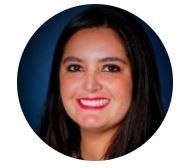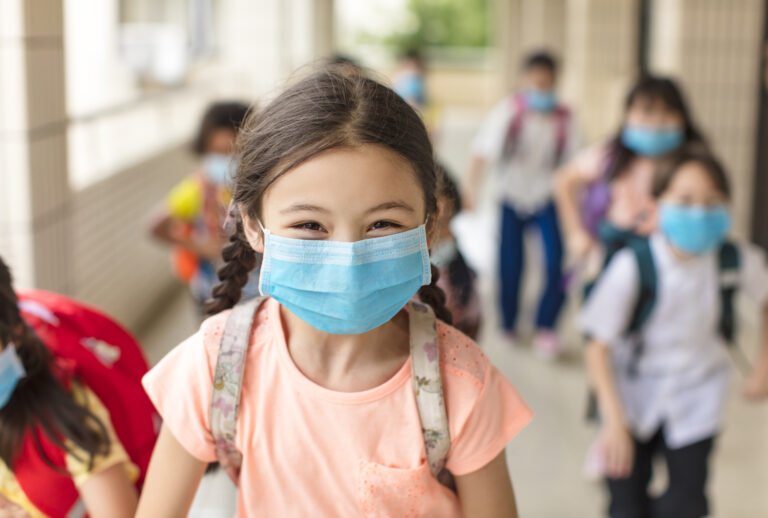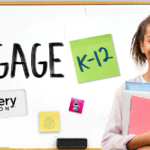By Katrina Long-Robinson & Veronica Ramirez, originally published in the Jan/Feb 2021 issue of Equity & Access
“As we await Palm Beach County School District’s final decision, we must remain mindful of the endgame; delaying the return to brick and mortar campuses is crucial, but it’s just the first step. Whenever students, teachers and staff return to school buildings, they will bring with them the trauma, pain and anxieties of the last six months. Many will have experienced the virus firsthand either being sick themselves or of having seen a family or friend with it. Others will have lost loved ones- mothers, fathers, grandparents, cousins, pastors, coaches and friends. All will approach school with an apprehension that is equal to their academic needs.”
— Katrina Long Robinson on her personal Facebook page
In 1986, Carol Fuery wrote one of the most appreciated books known to educators, titled Winning Year One: A Survival Guide for First Year Teachers. Unfortunately, nowhere in the text did it state, “Should a pandemic occur during your teaching career, you should do the following…”
But what did teachers do when faced with that unsolvable problem? Well, adapt and pivot of course, as they always have. It is obvious that educators have had to possess a sense of grit and grind to push through the educational pandemic woes of 2020. Teachers have always had to wear multiple hats. Now looking forward, somehow, some way, they must adapt even further in their new and unexpected quest to become a “pandemic-proof” educator.
Like many other career educators, we are concerned about losing an entire generation of students due to this pandemic. We will need leaders who understand the short- and long-term impacts of the pandemic on education as the great equalizer for students. They will need to not only acknowledge, but develop and execute an aggressive plan to address injustices and dismantle biased systems for all students in real, palpable ways. This means:
Engaging and empowering students with social-emotional learning (SEL) techniques
Prior to the pandemic, charter schools and school districts began to embrace the idea that effective implementation of SEL practices was a promising way to engage all students of various learning styles to be successful in the classroom as it related to dealing with stress and barriers while balancing school and life.
We believe that social and emotional learning is just as important and necessary as academic learning. Districts and charter school companies should ensure students have the ability and skill to manage relationships with peers virtually and work to maintain those relationships throughout the “virtual” academic school year.
No high-stakes standardized testing or school grades
Typically, school performance ratings are based on overall student achievement and growth compared to prior years’ performance. Should students be measured based on growth? Yes. Should teachers be held accountable for implementing Florida Standards? Absolutely. Should students and teachers be assessed or evaluated as they have been in the past? NO!
The impact of the pandemic on education provides us with an opportunity to teach the way most educators want to teach which is to separate from the pressures to prepare students for standardized tests. Simply put, this should not be a “standardized” test year. Instead, it must be one of personal growth, academic achievement, and emotional healing. This is a critical re-starting point.
But how?
It will be hard. Unfortunately addressing challenges by building a foundation and starting at “square one” is no small feat. Right now, and always, Education Policy and Procedures follow a top-down model. Ironically, assigned education task forces often include a few, if not multiple, non-career educators. Even though it is due to the work of teachers that each one of us can attribute our success, teachers and other educators are often overlooked when it comes to make these hard, informed, and important decisions related to the field of education at large. In what other field does the group of “experts” assembled to make decisions come from not just an outside organization, but an outside profession altogether?
We can start by creating a national task force focused on world pandemic education systems
As all of us keep mentioning, the situation we find ourselves in is unprecedented for modern day. Yes, there are challenges, but think of the options and opportunities we have now versus societies of people who have faced epidemics and pandemics in the past. When the right team of educators is in place and the capabilities of modern-day technology are used, the learning process can continue despite all odds.

Katrina Long Robinson is founder of KLR Consultants and the Douglas G. Robinson Pancreatic Cancer and Empowerment Foundation. She also serves an Elected Official in Palm Beach County.

Veronica Torres is the owner and CEO of Prestige Mentors for Educators and Students. She is a passionate and experienced educator eager to deliver messages that ultimately benefit the day-to-day experiences of education’s “front line,” teachers and students. The views expressed in this commentary are their own.
Follow this link to read more about the topic and ways to address pandemic education.
The American Consortium for Equity in Education, publisher of the "Equity & Access" journal, celebrates and connects the educators, associations, community partners and industry leaders who are working to solve problems and create a more equitable environment for historically underserved pre K-12 students throughout the United States.
- American Consortium for Equity in Educationhttps://ace-ed.org/author/admin/
- American Consortium for Equity in Educationhttps://ace-ed.org/author/admin/April 23, 2025
- American Consortium for Equity in Educationhttps://ace-ed.org/author/admin/
- American Consortium for Equity in Educationhttps://ace-ed.org/author/admin/







